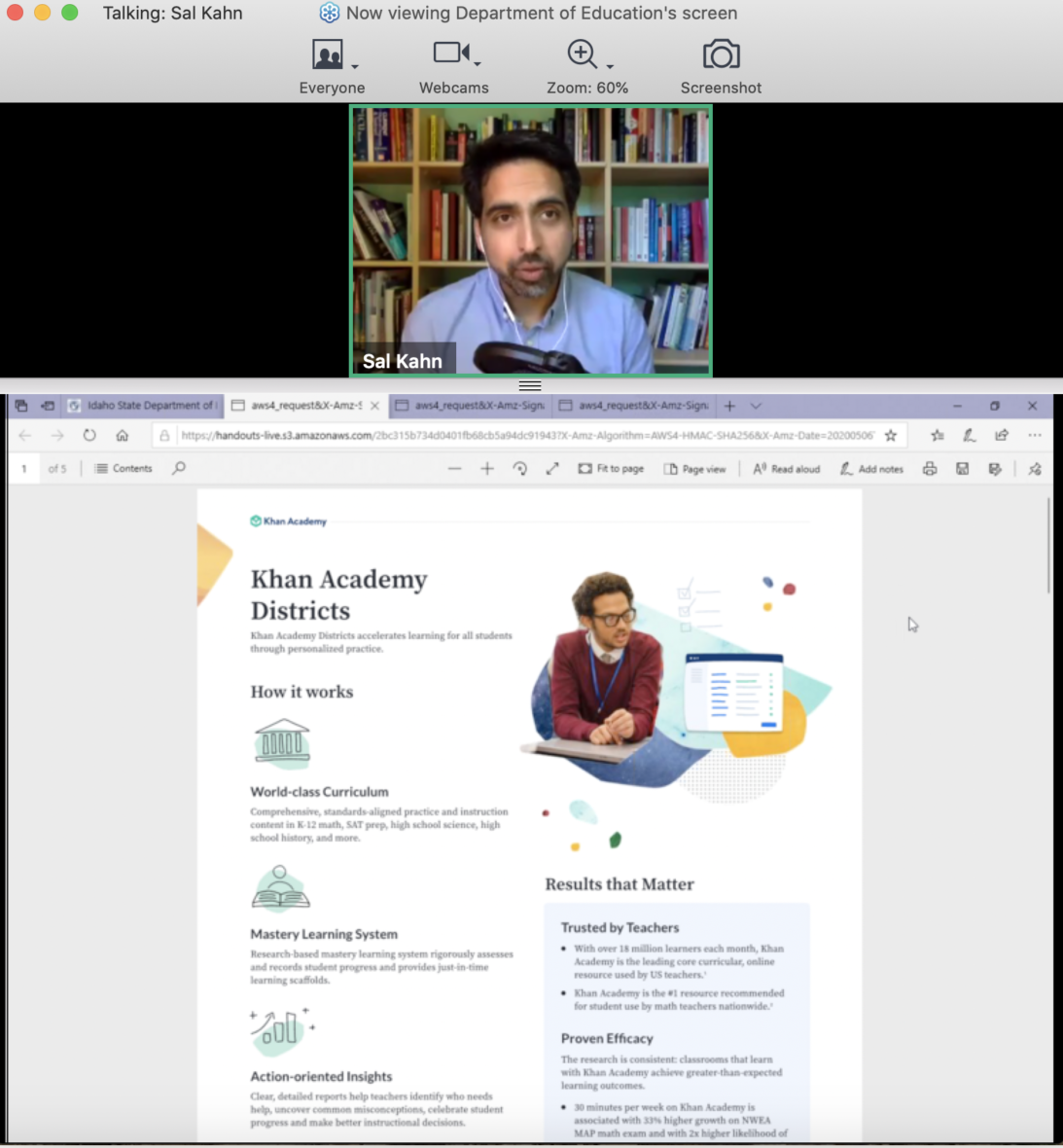Schools chief Sherri Ybarra discussed distance learning strategies with Sal Khan and other education and technology officials Wednesday.
Ybarra didn’t take any action or mandate Idaho school officials follow any particular programs or examples. But she did say it was important to share good ideas and leverage partnerships to improve teaching during the coronavirus pandemic.
“As you know, we’ve had to move to a statewide distance learning model due to Covid-19 and we’ve seen some really great, creativity, innovation and resourcefulness among our parents and our teachers and our schools leaders,” Ybarra said. “But despite all this we’ve also encountered some challenges and some obstacles as we’ve had to make this transition.”

Khan is the founder of the non-profit Khan Academy that offers online lessons and reaches 20 million students a month. Before the Covid-19 pandemic, Khan said technology will always be secondary to good teachers. But technology can help good teachers reach more students or do more with instruction.
“I’ve always said if I had to pick between an amazing teacher and amazing technology I would pick the amazing teacher every time,” Khan said. “But the ideal is not having to pick and having the amazing technology empower the amazing teacher.”
Ybarra and the State Board of Education are working towards buying a statewide learning management system that could push content and lessons out to students as well as share communication information and resources with families. During meetings this week, Ybarra said she wants the new system to be opt-in instead of mandated.
Ybarra also said Idaho lags behind other states and school districts when it comes to online learning management systems and stressed that it will be important and challenging to ensure all families have devices and Internet connectivity.
Here are snapshots of the online learning experiences:
Lee County, Florida:
Students were on spring break in mid-March when the governor announced they would close schools for two weeks, a closure that ended up being extended through the end of the year.
The district already had a 1:1 device ratio at the secondary level, but not the elementary. The district developed a continuity plan, reached out to families and distributed 15,000 Chromebooks over three days. Then schools allowed students to sign up for free internet offered by a local provider and the district purchased 10,000 internet hotspots, which it distributed to both students and teachers who faced connectivity gaps.
District officials also developed a plan to count attendance once a week based on assignments that are completed, Zoom meetings or other contact with students. Attendance increased to 99 percent over the past two weeks, K-5 curriculum director Bethany Quisenberry said.
“Moving to distance learning was an experience to say the least,” she said.
The district uses the iReady learning management system.
Yuma Union High School District, Arizona:
Yuma has had a 1:1 device ration for about 10 years. But officials did not invest in professional development training for educators that would have to work with the devices and platforms. That was a difficult mistake, Superintendent Gina Thompson said.
“We got the stuff without the adult learning that needed to come with it, and it’s just critical,” she said. “We’ve now such an amazing team as far as teachers for the adults. That has exponentially helped us through this particular time with Covid-19.”
Thompson said Yuma officials count themselves lucky they realized their mistake and got training in place before this year’s disruptions.
“From the time of Covid-19 and the first week of posting assignments… 100 percent of our teachers have their lesson posted,” Thompson said.
Interestingly, Yuma uses Canvas as its districtwide LMS, and does not allow schools to opt-in or opt-out, which Thompson described as the right call. “We have much more robust tracking of data,” Thompson said.
Looking ahead
Ybarra said she and her staff are planning to invite Idaho superintendents to discuss their distance learning strategies during an upcoming webinar.
